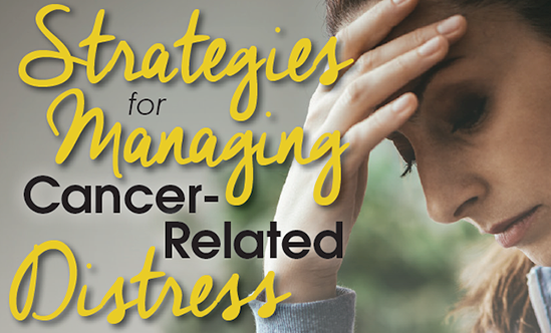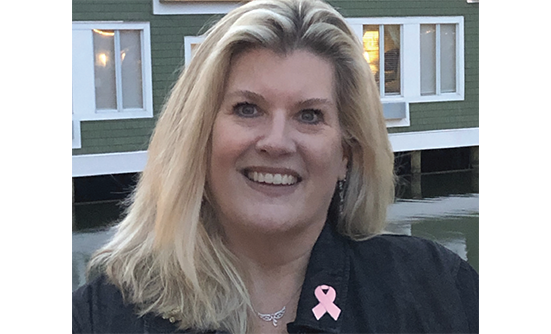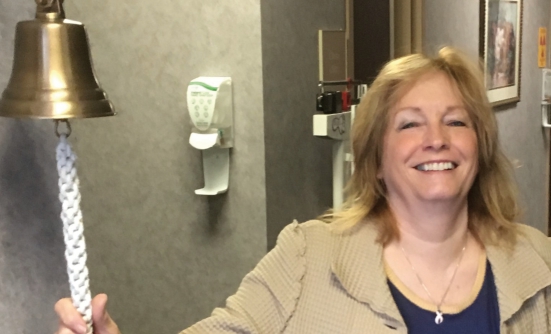When dealing with a cancer diagnosis, discussion of a cancer treatment plan is vital to help guide decisions about lifestyle and treatment. Equally important is a consideration of the individual who is experiencing cancer. Although the cancer experience is different for every person, cancer itself presents many challenges from a medical and emotional perspective. Occasionally, a patient with cancer may also experience symptoms of mental distress. Distress may arise from many different reasons, including, but not limited to, chemotherapy or cancer treatment, preexisting mental health issues, cancer-related factors such as disease progression, fear of dying, or symptoms such as pain, fatigue, or nausea.
What Is Distress?
The National Comprehensive Cancer Network (NCCN) defines distress as an “unpleasant emotional experience of a psychological, social, and/or spiritual nature that may interfere with the ability to cope effectively with cancer, its physical symptoms, and its treatment.”1 Just as each cancer experience is unique, so is each individual’s sensitivity to distress.
Having cancer is often a distressing event in itself, and therefore it is difficult to determine what is a “normal” amount of distress and what is more serious distress, which may warrant treatment. The hallmark of serious distress is the interference of emotional or psychological symptoms with “the ability to cope effectively with cancer, its physical symptoms, and its treatment.”1 Because of the different forms and degrees of distress, it may be difficult to identify this condition and may require the help of a healthcare professional.
Cancer-related distress may manifest in different ways, from symptoms resembling anxiety or panic to disorganized thinking and confusion.1 Because of the many forms and degrees of distress, it may be difficult to identify distress; it may often require the help of a healthcare professional.
Recognizing Distress
Distress can range from what is considered a “normal” or expected amount of distress to excessive amounts of distress, which may decrease the quality of life and interfere with the ability to make decisions. Just as a certain amount of blood pressure is needed to deliver blood throughout the body, some distress is necessary to assist in handling difficult situations such as cancer.
Studies of people with different types of cancer have reported that the most common distress syndromes are “adjustment disorders” or distress that is between what is considered a “normal” amount and an excessive level of distress.2
Adjustment disorders can have different distress symptoms and are often the result of a difficult event rather than an underlying mental health disorder. For example, according to the American Psychiatric Association, people with cancer who are experiencing new depression that interferes with their ability to participate in their care may be considered to have an adjustment disorder rather than clinical depression.2
Adjustment disorders and chronic mental health conditions often require therapy; however, the approach to therapy is different. Unlike chronic mental health conditions, adjustment disorders and distress symptoms are typically limited to a stressful event, such as a cancer diagnosis, and often resolve after the event. Therapy for adjustment disorders is usually focused on assisting the person through the stressful event and may only be required until the stressful event has passed. By contrast, therapy for chronic mental health conditions may require lifelong treatment.
Anxiety and depressive symptoms are the most common types of distress reported by patients with cancer. Communication with your healthcare providers throughout the cancer experience is essential and should include discussion regarding the way you are feeling, as well as any changes in your emotions.
Caregivers, family, and friends also play an essential role in monitoring and identifying changes in mood or behavior that may not be noticed by the person receiving care, or by the healthcare team.
Screening Tools
To assist in the sometimes difficult task of identifying distress, many organizations offer screening tools that are easy to use and can help to identify the extent of cancer-related distress. The Distress Thermometer offered by NCCN (www.nccn.org/patients/resources/life_with_cancer/pdf/nccn_distress_thermometer.pdf) is such a tool that can be completed in just a few minutes and may help identify the need to seek medical attention for distress symptoms.1
When to Seek Help
Tools such as the Distress Thermometer may help in identifying distress symptoms; however, healthcare providers should always help in diagnosing and managing cancer-related distress. Those who provide care for patients with cancer are trained in recognizing distress symptoms and will be able to help you identify when the level of distress becomes excessive.
Throughout the cancer experience, alert your healthcare providers any time you feel that emotional or psychological symptoms interfere with your ability to make decisions or to participate in your care. If you have thoughts of harming yourself or others at any point, it is vital that you seek immediate medical attention.
Resources
The most important resource available is your healthcare team. Healthcare teams are trained to not only assist you as a patient, but also as a person. If you have an ongoing emotional issue, you may choose a treatment center that is well-equipped with mental health support services specifically for persons with cancer.
Many larger cancer centers have “psycho-oncology” services dedicated to addressing cancer-related distress.3
The American Psychosocial Oncology Society offers a toll-free hotline (see Patient Resources Box) to assist with mental health issues, and to locate emotional health resources.
Organizations such as the LIVESTRONG Foundation offer support services for persons with cancer that may help to maintain emotional well-being and quality of life.
Discuss with your healthcare providers the different treatment options available to you, and which therapy you feel would work best for you. Mental health treatment does not require medication, although medication may be an option.3
Maintaining your quality of life and emotional well-being are important strategies for success during your cancer journey and throughout life.
References
- National Comprehensive Cancer Network. NCCN Clinical Practice Guidelines in Oncology (NCCN Guidelines): distress management. Version 1.2016. May 6, 2016. www.nccn.org/professionals/physician_gls/pdf/distress.pdf.
- American Psychiatric Association. Diagnostic and Statistical Manual of Mental Disorders, Fourth Edition, Text Revision (DSM-IV-TR). Arlington, VA: American Psychiatric Association; 2000.
- Andersen BL, DeRubeis RJ, Berman BS, et al; for the American Society of Clinical Oncology. Screening, assessment, and care of anxiety and depressive symptoms in adults with cancer. Journal of Clinical Oncology. 2014;32:1605-1619.
Key Points
- Each person responds to a cancer diagnosis in a different way
- A cancer diagnosis is distressing
- Excessive amount of distress may interfere with your ability to cope effectively with your treatment
- Unlike chronic mental health conditions, the symptoms of distress are linked to a stressful event, such as a cancer diagnosis, and will likely resolve after the event
- Communicating with your cancer care team during treatment is essential
- Tell your care team how you are feeling and report any changes in your emotions
Patient Resources
American Psychosocial Oncology Society
866-APOS-4-HELP (866-276-7443)
http://apos-society.org/people-affected-by-cancer/helpline/
Cancer Support Community
www.cancersupportcommunity.org/MainMenu/Cancer-Support
LIVESTRONG Cancer Navigation Services
www.livestrong.org/we-can-help/livestrong-navigation
National Cancer Institute’s Cancer Information Service
www.cancer.gov/aboutnci/cis/page1
National Comprehensive Cancer Center Distress Resources
www.nccn.org/patients/resources/life_with_cancer/distress.aspx
















